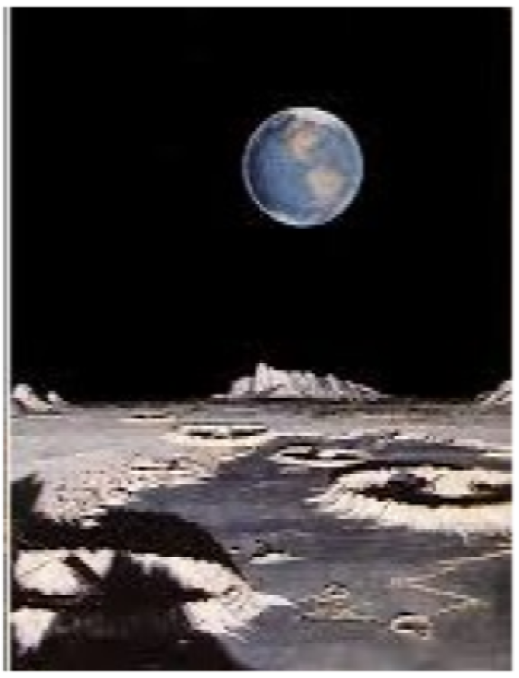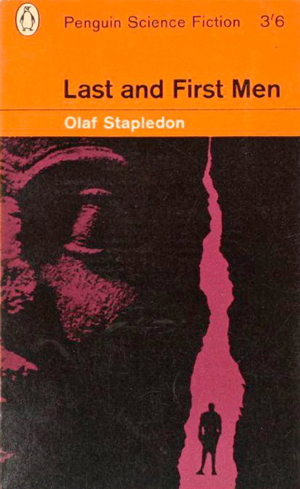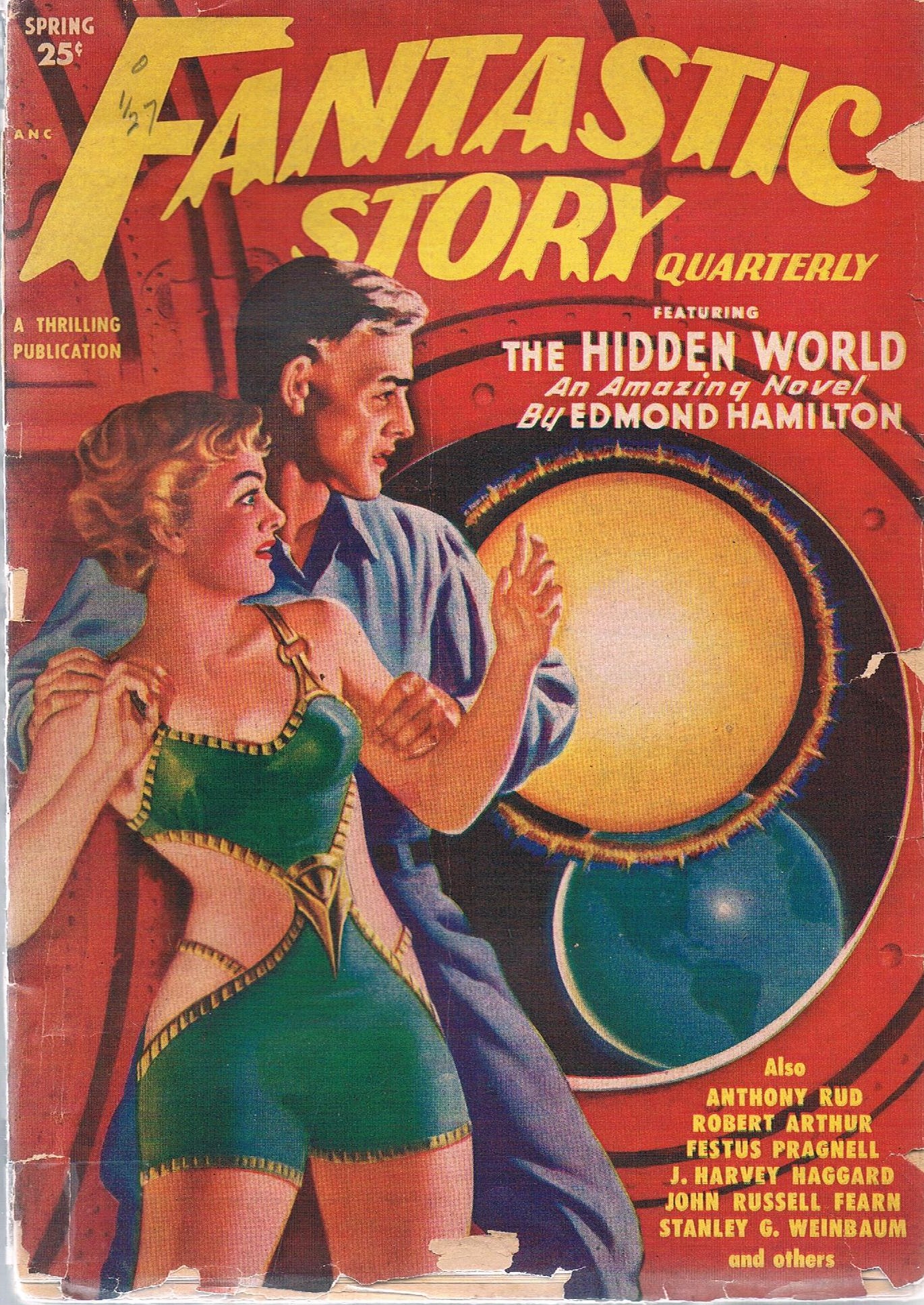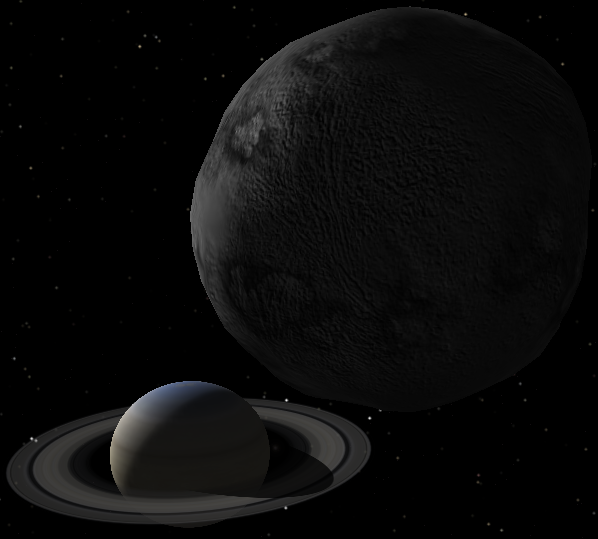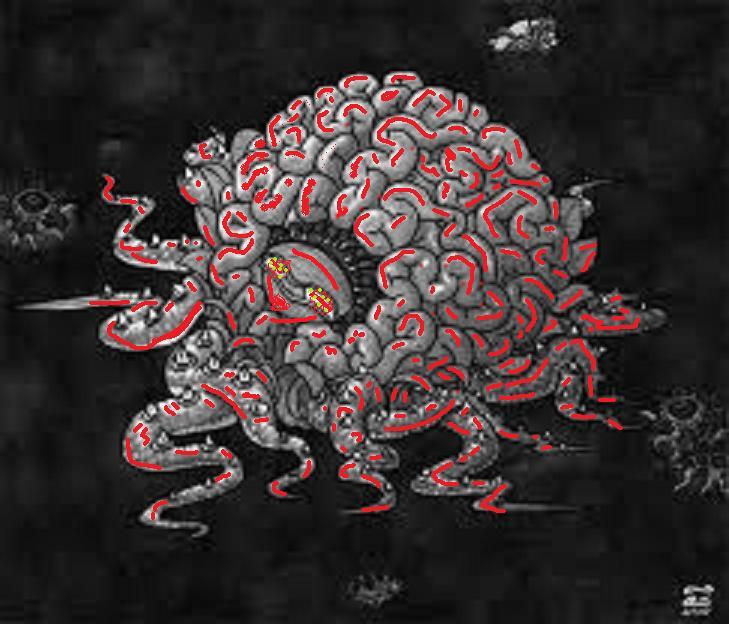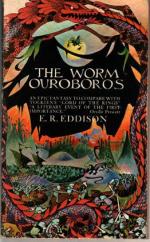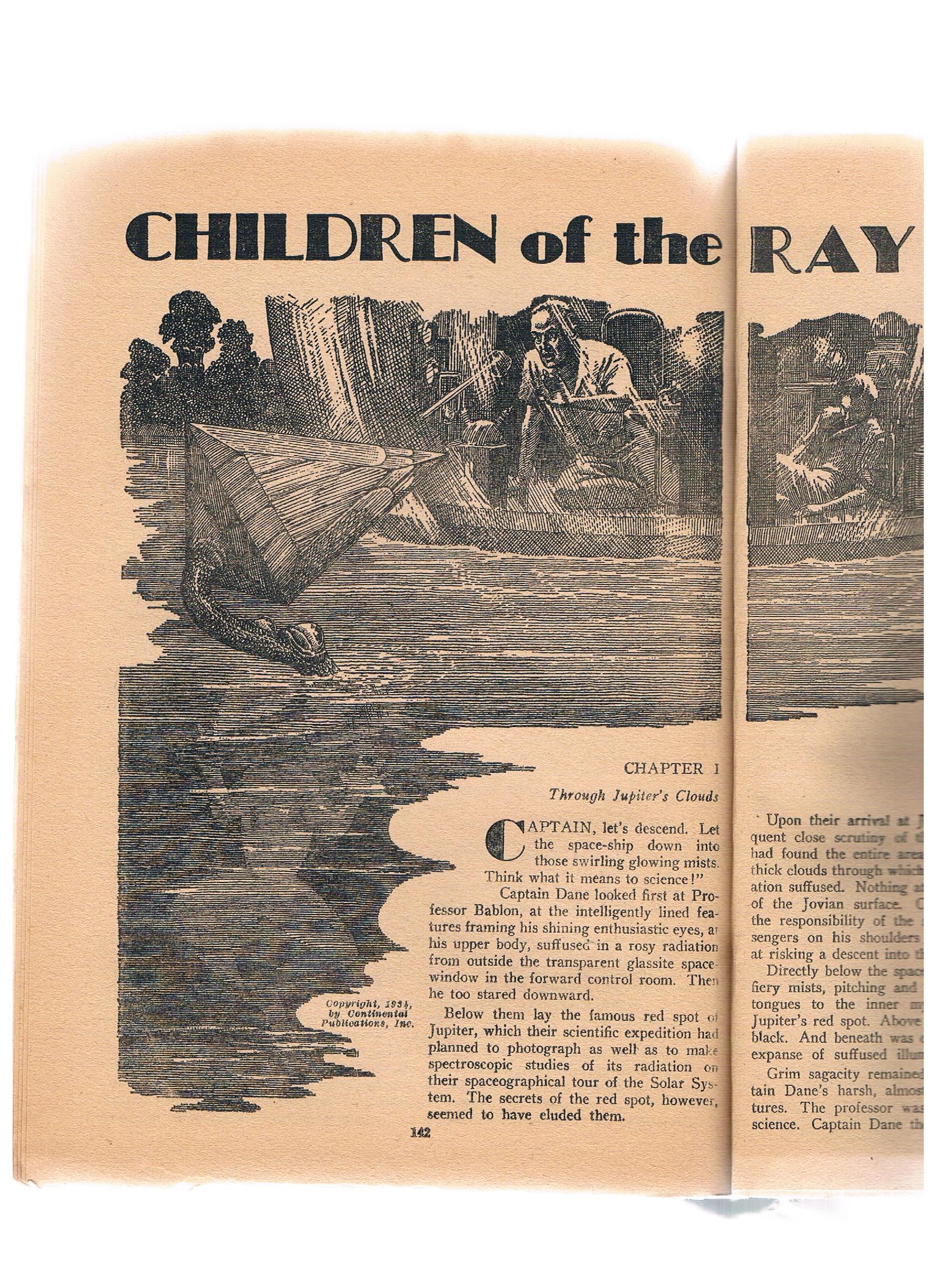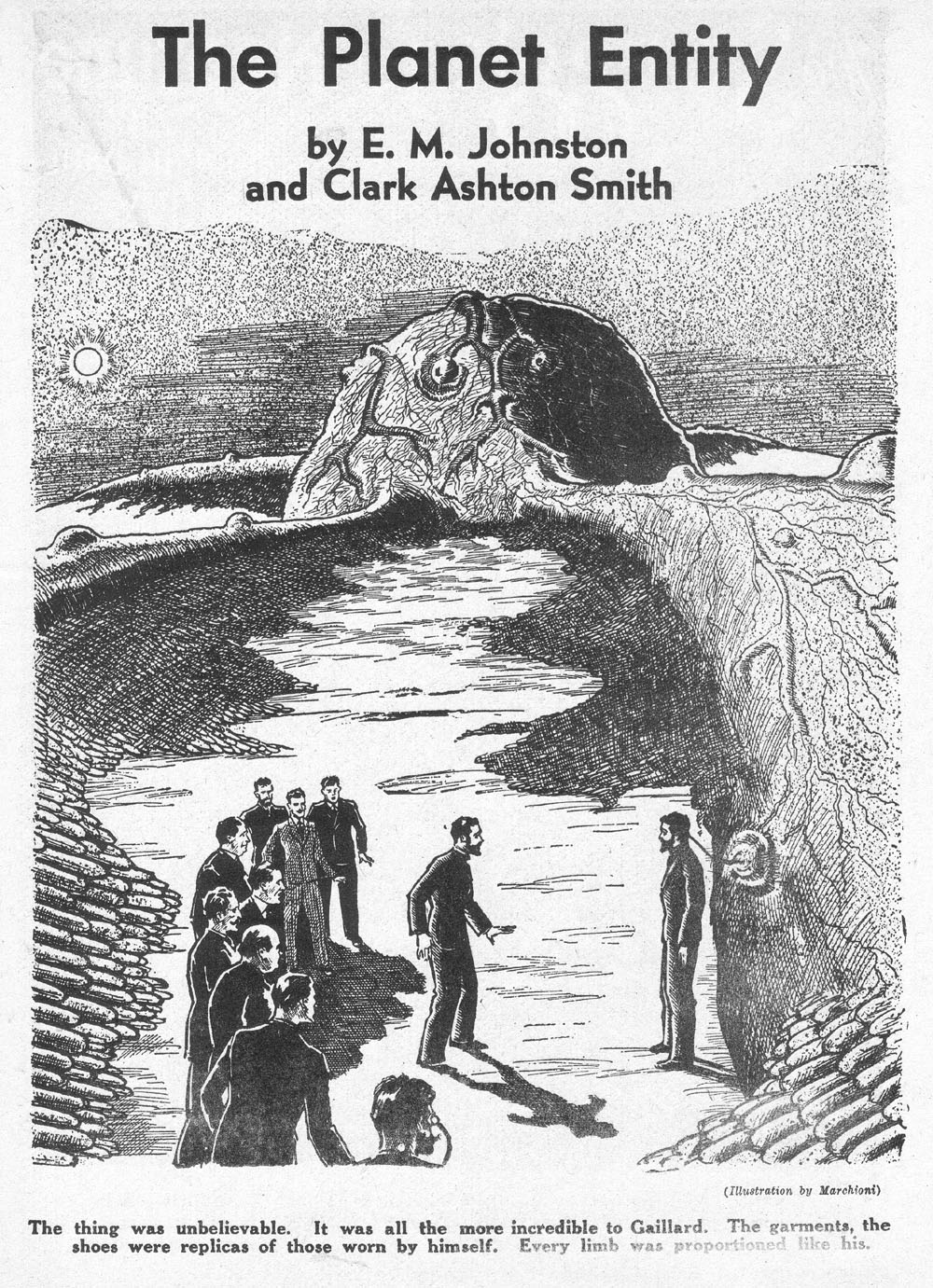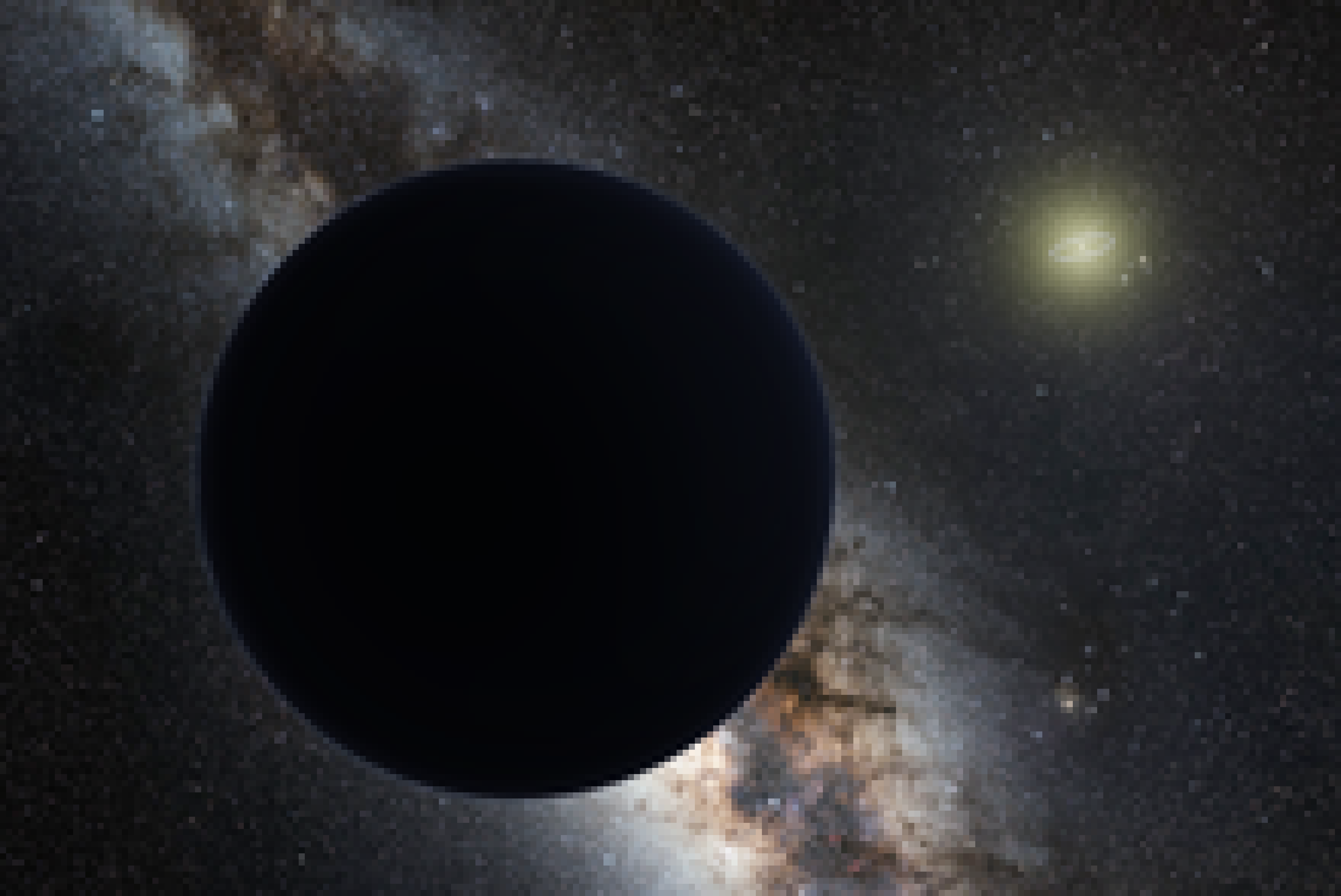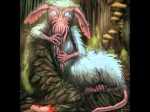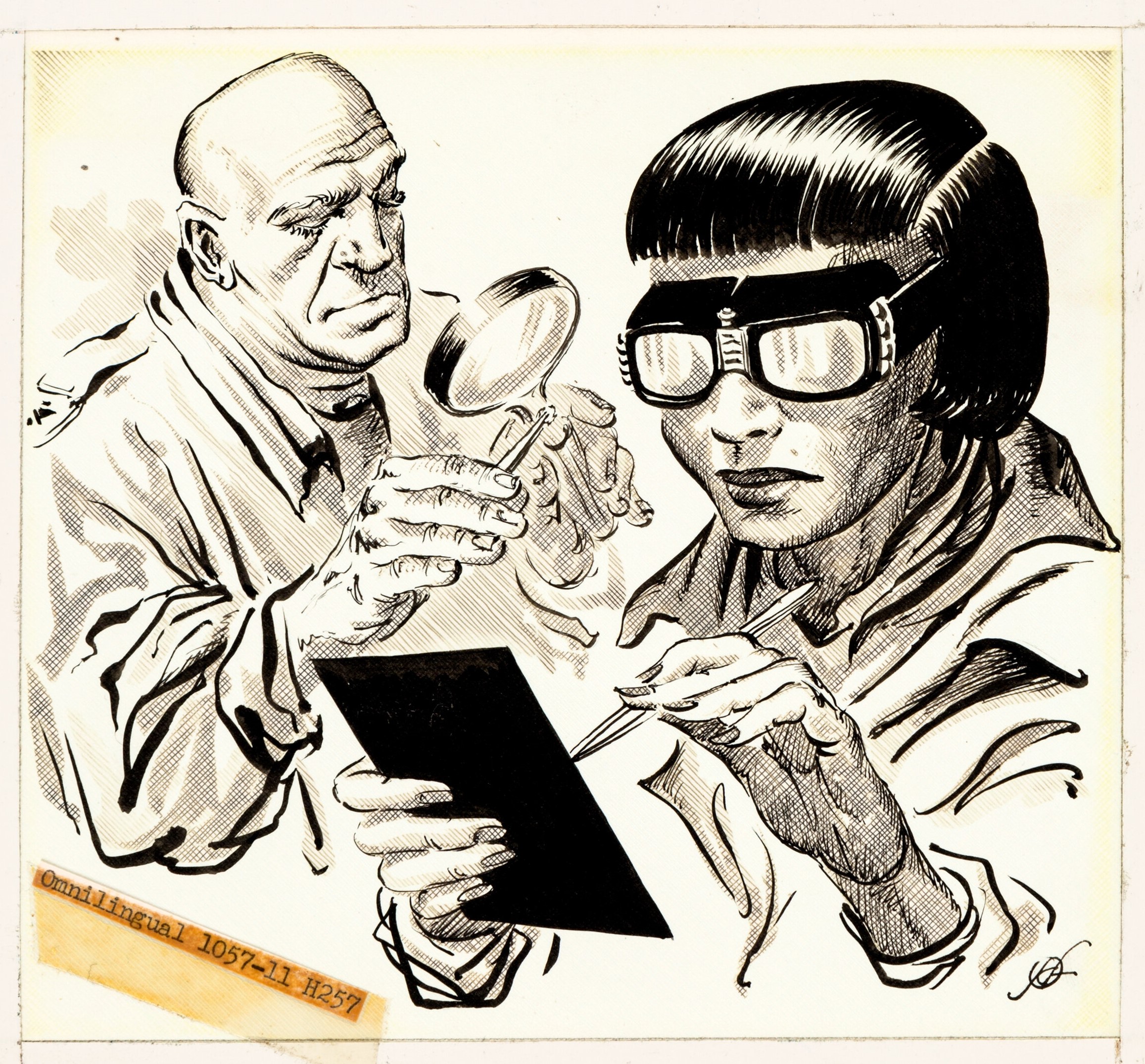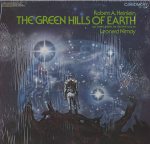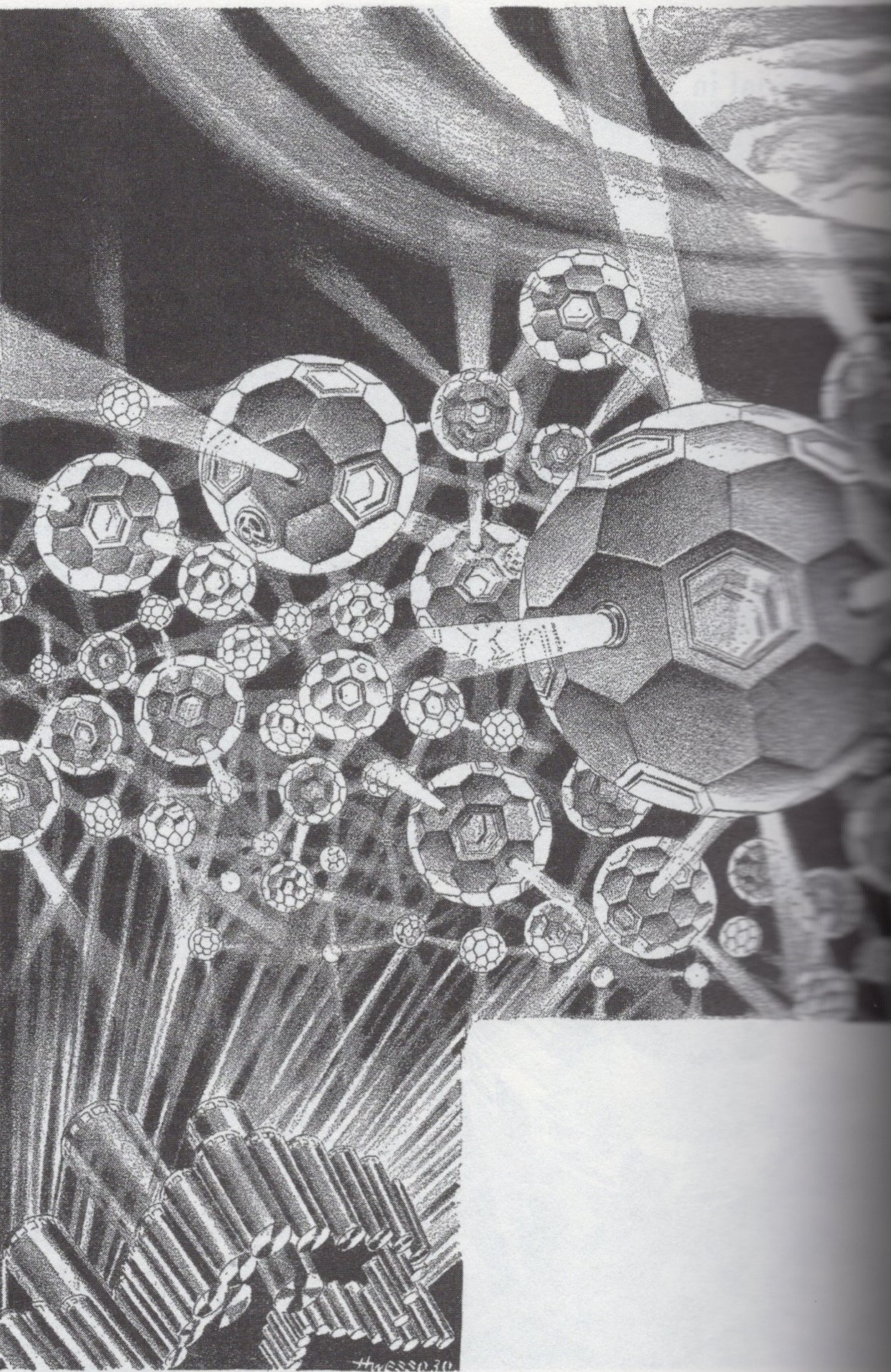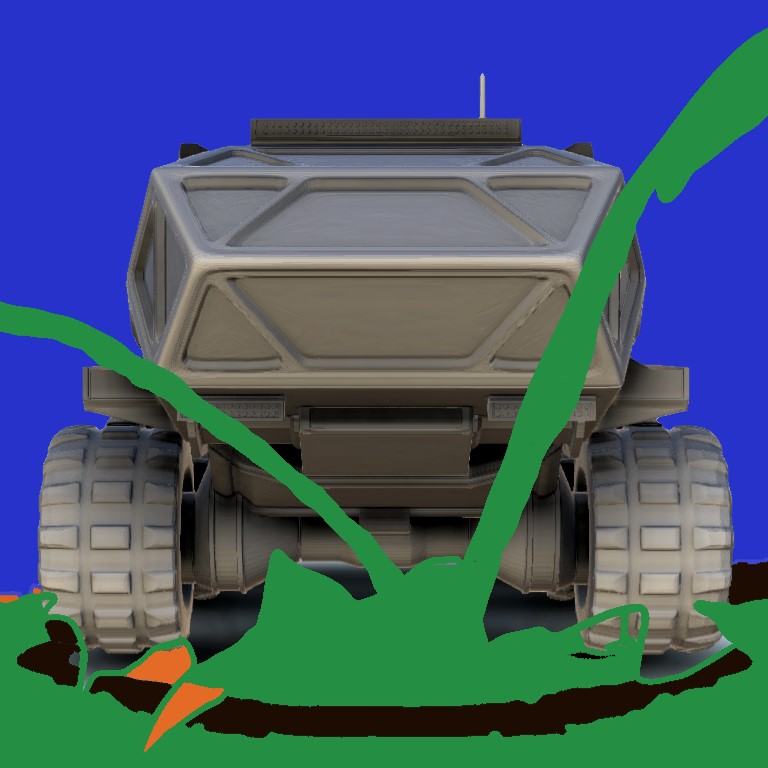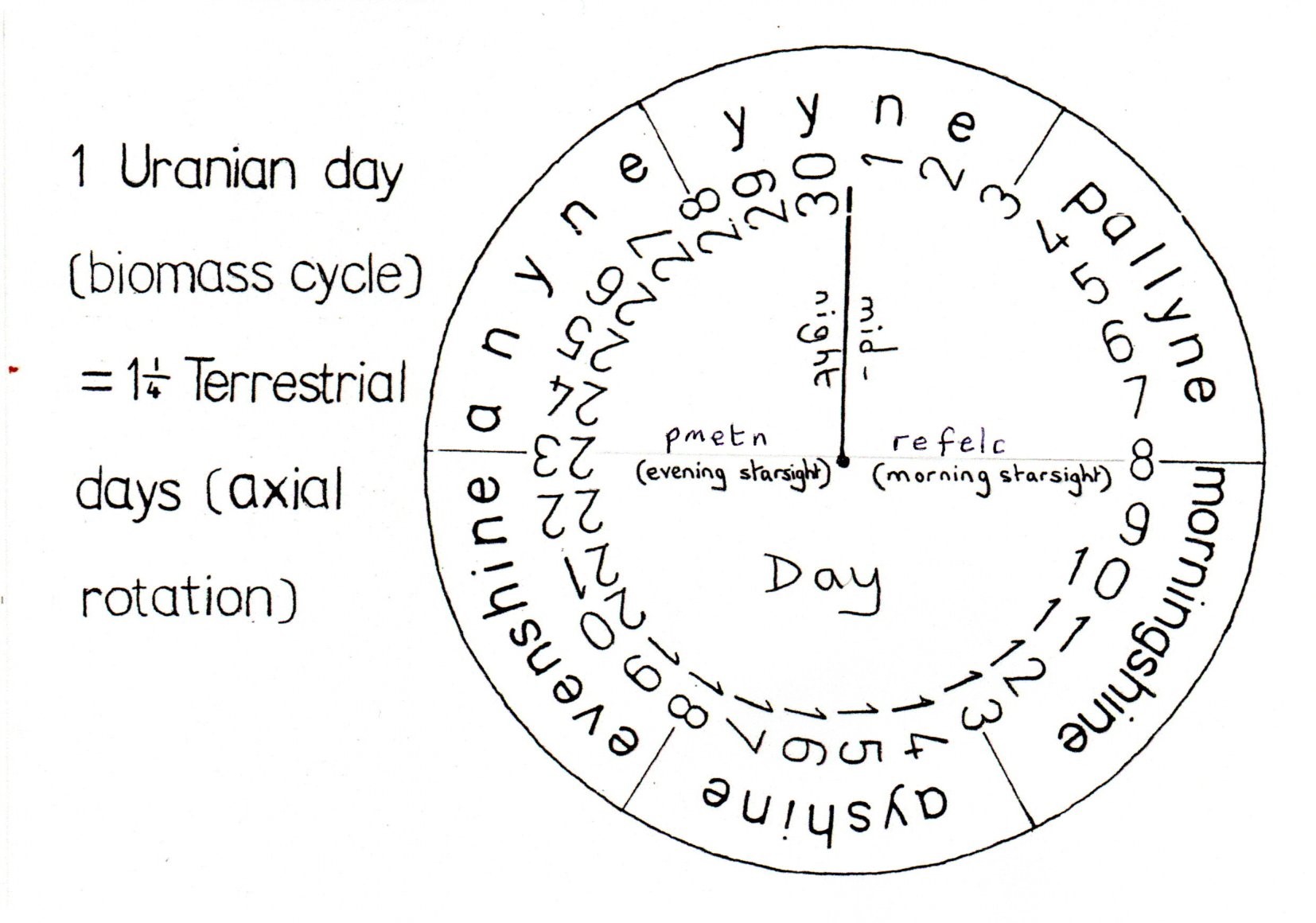- Home
- Your Views
- Part four of The Archives of the Moon
Part four of The Archives of the Moon
by Robert Gibson
(Lancashire, England)
IV
Titanic avenues of black-green stone ran commingled with thin crumpled causeways of light metal, which led to and from many-faceted buildings like huge black diamonds, supported by translucent spirals of a form and texture weirdly reminiscent of frozen smoke. When upright, these twirled pillars hardly touched the ground, but many had been toppled so that the polyhedral black structures which they had borne aloft now lay fallen and gashed – apparently by the hostile agency of gaunt, tripedal cutting-engines which still towered over their hapless victims. Millions of years ago, the battle must have ended with the fall of the smoky towers under the impact of those whirling tripedal scythes, quiescent now in a colossal, somnolent tableau.
Royden loped forward, spellbound, to pass among the fallen black buildings and their equally moribund conquerors. His eyes widened as his brain attempted to absorb wonder after wonder.
Through the gashes, the fatal wounds in the black polyhedral structures, puzzling interiors were visible, of an egg-like saffron softness, in which twists of fused and tortured metal were half-submerged. The wrecks meanwhile bulked incongruously against other, different shapes: dark stone slabs of almost cathedral size, propped unevenly against unfinished ramparts part-girdling the city. And these in turn were punctuated by “trees” of silver scaffolding, which reared incomprehensibly before still larger monoliths leaning untidily upon each other as if in haste to resemble Cyclopean ziggurats...
No plant grew on the wide flat lava clearings of this lifeless metropolis, or on its rectilinear paves, or the flanks of its sloping structures. The site was of such durability that not even aeons of meteoric bombardment could erode their tough surfaces into friable lunar soil. Royden’s boots made a clinking sound as he moon-walked in slow motion deeper into the city. The sound he made echoed and re-echoed faintly in the thin hemisphere of air, dying unanswered, to leave incoherent premonitions hissing their warnings in the childish recesses of his brain.
He must, he told himself, find people in due course, if he continued in this direction, for it would bring him through the alien city to the landing-field and the Administrator’s offices on its other side, where the first explorers had found a convenient flat area on which to build a base. The base could not have been abandoned, for – he now reminded himself – the parked freighters of the Interplanetary Survey had been visible from the ridge over which he had previously climbed. So that was all right, he repeated as he wended his way among the towering Selenite constructions.
Onward he persevered, through chasmal streets fronted by vertiginous blocks; he stooped under house-sized polyhedra which bulged under leaning vitreous spirals; he sidled past the ominous tripeds, twenty feet high and bristling with their silvery knife-arms of similar length, their ferocious mechanical mien frozen in the attitudes of their victory – the triumph after which they had been abandoned for unknown reasons by their now-nameless owners.
Whenever he had to pass close to any of the fallen polyhedral which had gaping rents in their sides, he was moved by a supreme disquietude, fed by imponderable suspicions. The “yolk” – he could not help thinking of it thus – in the interior of the faceted black buildings was of a non-particulate nature which had so far defied all analysis and had indeed driven more than one eminent physicist to despair; but however abstract the problems involved, the reaction felt by Royden in the vicinage of these objects of mystery was one of emotive disgust, prompted by an insistent hunch which told him that those objects which were unhallowed by the physical laws of this universe must also be unhallowed in every other sense. However, as a scientist, he made a conscious and dutiful effort to repress this surge of morbid thoughts.
Thus sternly logical, he continued his gliding hops among the bright clean dead giant shapes. But it was impossible to stay logical for long, impossible to stave off the drift of fantastic ideas, drifting as he was, floating drenched in phantasmal light, and numbed by the continuity of infinitude. Vista after overlapping vista surrounded him in a chill gallery of inhuman colossi, seemingly ageless in the disconcertingly unweathered abyss of lunar time. It was easy in reverie to imagine that the damage done to this Selenite city had been inflicted only a day before, and that the sounder buildings might yet be inhabited, saved from destruction by a timely surrender to the tripedal conquerors...
Why did I come here? he asked himself suddenly. Why was I so sure that I was right and Professor Sherman was lying?
He had halted and was standing still in front of a row of human corpses.











































